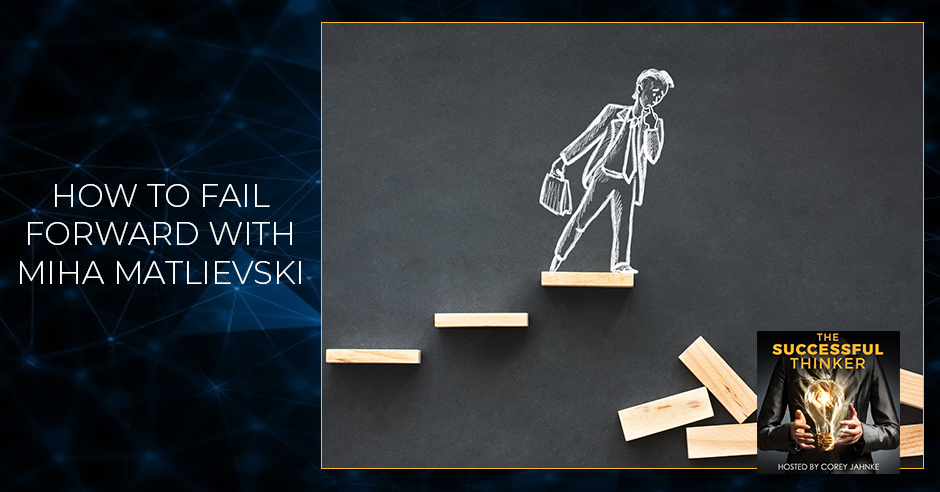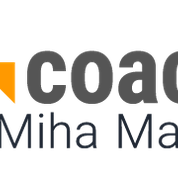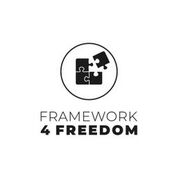
Dealing with failure is a generally tricky subject among many people because it tends to bring out a lot of strong feelings. In reality, failure is the number one reason for suicide among entrepreneurs. Miha Matlievski is a serial entrepreneur and failure coach. Miha shares his story with Corey Jahnke to show you that there is a way through when you fail; you’ve just got to fail forward and fight through it. Let Miha’s story inspire you, keep you going, and remind you that your once you’ve hit bottom, there’s nowhere to go but up.
—
Listen to the podcast here:
How To Fail Forward With Miha Matlievski
How To Learn From Your Mistakes To Create A Solid Business Foundation
This episode is exciting for me because one of the reasons that we started the show is that we wanted to help you learn to look at your life in a different way when things aren’t going your way. I believe that most of the time, we have this incredible expectation that life is going to work out for us. All of a sudden, we get clobbered and it hits us hard that we don’t know what to do next. We start thinking about some negative thoughts and some things that are quite frankly dangerous. Here in America, we have a lot of people who do take their own lives over business failures, life failures and so forth. The guest we have is an expert in failure and how to overcome it. This man has created businesses. He’s apparently lost businesses and then recreated himself and he’s helping entrepreneurs like you these days learn how to move forward when you fail. One of the things that’ll come out of this interview is it’s not about if you fail, it’s about when you fail. His name is Miha Matlievski. I’m excited to have him hear me. Miha, how are you doing? Thanks for being on our show.
Corey, it’s a pleasure to be on your show. Thank you for inviting me. As far as I know, I’m still the only failure coach in this world. Often, people take their lives over life or business failure and I’ve studied failure a lot personally and as a failed coach. Failure is the number one reason for suicide among entrepreneurs.
Isn’t that scary and sad? It doesn’t have to be that way. Would you please share with us your story and how you got from where you started to where you are now?
It all started with me having a perfect childhood. I was a spoiled child. Nobody was holding me accountable for anything and that will play a huge role later on. That’s why it’s important to mention this. I dropped out of high school when I was seventeen. I went to work for my father’s small family business. When I joined my father’s company, I was more or less shunned by occupation. It was like, “Do whatever you like doing. Here’s a good paycheck and enjoy your life.” Everything was perfect. A few years later, when I was 23, my father was diagnosed with pancreatic cancer. Three weeks later, he died. I was the only child. My mom worked at the bank, not as a bank teller but somewhere in an office. She had no entrepreneurial experience. Everybody thought, “You’ve been working there for some time. You must have picked up what you have to do and how to run a company.”
They were all wrong. Quickly, that company started failing and going towards bankruptcy. Life is trying to give you lessons. A lesson would be, “Miha, why wouldn’t you stop a little bit and figure out what it is that you are not handling well? Find some help or learn something new.” Because of that perfect childhood, I had this huge ego that I’m a perfect person to do this. I know everything already. I didn’t. Life brought a few people into my life who somehow saw something in me and they decided that they want to invest in the company. They took over the majority share and they took over everything, how you run a business. I was doing sales networking, which I was good at. Quickly, almost suddenly, I was doing 100%, 150%, 200% more month after month in sales. My life was beautiful again. I had so much money. I was flying high. I have twenty-something amazing cars. I was traveling, enjoying life. I was always the dreamer, the entrepreneurial spirit type. Everywhere I would go, I saw opportunities. They took over the majority share. I was like, “Why would I create new products in this company? I’ll start my own company. I know how to do everything best anyway.”
All of our lives, we are in nonstop beta testing mode. Share on XI started creating a new company. I lacked one thing. I never learned and I never did any foundational work, either on me, as the entrepreneur. There’s more than being good at sales for a good entrepreneur. There’s more than sales and marketing when it comes to a company with a solid foundation for sustainable long-term success. I always give a comparison with the story of the three little pigs. All my companies were like that first house made out of straw. Because of the lack of foundation, I was still doing good in spite of not having any foundation. I thought that I’m still good. Looking back, that was a few years before that huge crisis. The whole economy was booming at that time. I was riding the waves. Looking back, I can’t remember a single company going bankrupt at that time, but I thought, “Look at me. I’m amazing. My companies are growing.” All my companies went to 7 and 8 figures in yearly revenue. I had one company that has an investor in this huge, multiple eight figures, real estate project, then the crisis came.
The same thing as the wolf, the crisis, when the wind started blowing, my companies were the first to go bankrupt. It was because all of them were tight under that loan for that real estate project and all my assets as well. I put everything on the line. I was a huge poker gambler. I wasn’t playing poker, but I was gambling not at the green table. I was gambling with projects and everything. On Monday, December 7th, I got a call from the bank and they said, “We are out because you are in the middle of this project. When you finish it, the price that you are building will be higher than the price you will be able to sell it. We want to cut our losses and go straight away.”
In Europe, there is this financial instrument. When you are signing the agreement, you pre-approve, without any further approvals from you, they can take all the money and all the assets that you put on the line. The next day, everything was empty. All my other companies, I had employees. I had to pay taxes. I had to pay my suppliers and all the money was gone. I didn’t get the message. I didn’t understand what happened to me because it’s too big for me even to understand that. I was in that survival mode, “I can do it, I can solve this.” I believed that I could.
As the days and weeks went by, the solution was never to be seen. There were less and less options on my, “What are my options list?” Phone calls from people and companies that I owed money to were going, “We’re checking up. We will sue you. We will do this and this.” It was almost like talking to mafia most of the time. I would wake up every morning to phone calls like that. I went straight into depression. I was permanently in depression and anxiety. Slowly, darkness came into me. I was this child full of dreams and goals and I saw opportunities everywhere and so on. Suddenly, I was like, “Maybe I used all the good portion of my life and this is my new reality.”
There was no tunnel, no light, no nothing. I even remember at one time, a friend of mine called me to invite me to his birthday. I started opening my mouth because I wanted to say yes, but no voice came out of that mouth. In my head, I was like, “Who am I kidding? I might not even be alive tomorrow.” That was my reality. My head was like a nuclear reactor, overthinking, thinking, going through everything over and over again. At one point, you start thinking like, “What’s the point?” What’s the point of keeping on going if this is a new reality, it will struggle?
It will be day-to-day, week-to-week, living on a few pounds of potatoes or a bag of fries that you cook and eat without anything. They take your car. They take your apartment. Life doesn’t have any meaning anymore. I was more and more researching the topic of suicide. In the spring of 2010, a few months have passed since that December fall. I climbed on the other side of the balcony. The apartment was going to be taken away in a few days and I climbed over. I don’t remember how that happened. I know I found myself on edge holding with one hand, being 45 degrees over and ready to let go.

At that time, I used juicy language because you failed. You made many mistakes. You did this. You did wrong. I was letting all that anger out. The funny thing was that it was the first time I blamed myself for the bad things. It is because of that perfect childhood, I never was able to take ownership of anything bad. When something good happened to me, that was normal because I’m King Midas or next Jesus reincarnation. When something bad happened to me, I always found something or somebody to blame for my mishaps. This was the first time that I had this out loud dialogue with myself. I heard myself say the word, you, and then I had these flashes going back, “I signed that. I employed that. I made that choice. I took that project.”
As hard as that was to understand that me, the perfect child, can do something wrong. It was in a way liberating because my next thought was, “If I did all those mistakes.” Around $15 million was my personal net worth at that time before the failure. “I can do it again if I change, if I learn, if I grow, if I make better choices, if I find people who know things better than I do.” Suddenly, there was this light. There was this huge tunnel, but there was this little light on the other side of the tunnel. That was all I needed. If I see even the slightest ray of light, I’ll keep going. I am a fighter. I’m not a quitter.
If I see that little light. For a long time, I didn’t see any light anymore, that’s why I almost gave up on everything. When I saw that little ray of light, I climbed back in and I started making a huge list of everything I need to work on. The next day, I started calling people before they would usually call me. I was like, “I need space. I need time. I need to create something big.” Either we ended now and I was super serious like, “Come here and do whatever you want to do. Let’s end it or give me that space that I need to create something huge.” They gave me that space. I started this journey because I had so much to change.
I still haven’t found it. In the past few years, I worked with over 350,000 entrepreneurs in different ways and I still haven’t found an entrepreneur with a failure or a struggle that I can’t relate to. I made all the mistakes an entrepreneur can make. I haven’t found yet somebody who would struggle with something that I can say, “I never struggled with that. That’s the one area I never struggled with.” I had a lot to learn and to overcome. That journey of self-development, you are the first pillar in the foundation for your business, you, the entrepreneur. It all started with personal development and then with business development.
In 2014, I started a new startup and I was able to scale that startup from zero to multiple eight figures in monthly revenue. By the end of the year, in one year, and then to multiple nine figures the next year. I had my exit, a Fortune 100 company bought that. My share was highly diluted. I didn’t get nine figures out of it, but it was enough for me to repay almost $7 million in past debts and was left with a bit more. Many years later, I found myself having the freedom of time, the freedom of money and what I call the ultimate freedom, which is the freedom of choice. I was like, “What do I do?” Investors were calling me, “If you start something new, let us know. We’re there. We want to back you up.”
Failure is the number one reason for suicide among entrepreneurs. Share on XScaling fast was challenging on all possible levels, emotionally, physically, it was insanity times 100. If you look at those insanity videos for working out, multiply that by 100 and then do that 24/7. I was sleeping 2 to 3 hours a night, every Friday I would then fall flat on the bed and wake up Saturday morning. That was one night in the week where I got some sleep. All the rest were many sleepless nights, not just one but 2 to 3 in a row. It was super challenging and I needed to take a breath. What I realized at that time was that I’m not an entrepreneur by occupation. I am an entrepreneur.
That’s in my DNA. I can’t go to local bars and talk with local drunks about the weather, women, cars, the usual manly debates or politics and who won the Champion’s Cup. I need to be surrounded by entrepreneurs. I started going to startup incubators, accelerators, coworking spaces, and I was volunteering. Can I help entrepreneurs? Can I mentor somebody? It’s to be surrounded. Can I organize some meetups? Can we do something? Slowly, I realized how fulfilling and how rich I feel in my heart by helping others. I don’t have the numbers that I had before my failure, but I feel like a billionaire. I can do all these goods to others. At one point, I was like, “That’s what I want to do. I want to be a full-time mentor, advisor, coach, teacher.” Whatever they need, whatever I can help them with, I want to support the entrepreneurial community. That’s how the whole idea was born.
I was having a few beers with a friend and I was like, “What do I name this? How do I brand myself? Who am I? What am I bringing to the table?” This guy said, “You’re constantly saying how important it is to have a healthy relationship with failure, how you will fail so much more to achieve little success. How you always have to be permanent beta, always trying, always testing, bouncing back quickly. How every story started.” I was like, “I started with I did this and that’s how I failed. I did this and I came out on the other side.” He said, “You were the fail coach. You talk so much about the failure.” Honestly, the more I talk about it, the more I share the story, the more I share how I help people and what we do, the more I am in love with that. The more I feel that fail coach is not what I do, but it’s who I am.
That’s fun because there was a speaker called Jim Rohn. Are you familiar with Jim Rohn? One of the lectures that are in my car on the audio is Jim Rohn said, “It’s too bad that failures don’t give seminars because wouldn’t that be a tremendous lesson to learn? This is what I did.” One of the things that I’ve been reading a lot about are these people that put out themselves as a coach as if they are the golden child. They’ve never messed up, so come follow me. I think there’s a huge disconnect because one of the things I heard you say was there wasn’t a challenge thus far that an entrepreneur has brought to you that you haven’t run into yourself. That underlines an important point. The point is that you are not the only one who has made this huge mistake that you feel like an idiot making.
It feels like you are the only one. I remember back then when I went through that depression and so on. You feel that everybody’s well-armed. That the worst thing happened to you and God doesn’t love you. You start asking yourself stupid questions like, “What harm did I do?” That will not yield any good responses. You have to ask yourself, “What did I mess up? What were some of the wrong steps? What were some of the bottlenecks? Let’s find that. Let’s eliminate that. We’re on the right track again.” Maybe it’s easier to explain this. Let’s say I want to lose ten pounds in the next 30 days. If I go to McDonald’s every day, it probably won’t happen. Let’s be honest, even if I ordered the salad. That salad has more calories than the Big Mac with that dressing. I will not achieve it. You’re doing wrong steps that are not aligned with your goal.
It’s not that you don’t hit the goal, it’s not that you fail at not losing weight, the process wasn’t done in a proper way. Daily steps weren’t aligned with that goal. The second thing that can happen is I can eat healthily, but maybe I eat four pounds of bananas every day and three pounds of oranges, then I eat a whole bunch of salads with something on it. I need 2,000 calories, but I’m eating 4,000 calories a day. I’m eating healthy food, but I’m overdosing on that. That would be more like bottlenecks. I’m doing the somewhat right steps with healthy food, but the bottleneck is that I’m consuming too many calories. Either the problem is that you’re doing the wrong steps or there are bottlenecks that you need to figure out so that you can be aligned with the goal you want to achieve.

One of the things that I like about your website, which is Fail.coach, is that you talk in terms of not only do you have bottlenecks and not only do you have wrong things, but you also have the wrong order. You help your clients figure out what are the right steps in the right order. Could you talk a little bit about those?
When I started coaching, I’m super hooked-up on giving value. Everybody who knows me knows that I’m overly obsessed with giving value. In the beginning, I thought, “Corey, if I coach you, in an hour, I can tell you the whole plans from 0 to 8 figures.” I thought, “I’m giving you all this value in one hour.” What I realized later on was that I’m overwhelming, so I end up being even more confused and more overwhelmed. It was the TV show Friends. There’s this one episode where Chandler runs away when he’s about to marry Monica and then Ross finds him. Chandler was overwhelmed like, “We will be the Bings and the children and the dog and the summer calls.” Ross says, “Let’s do it one step at a time. Let’s go home and shower.” When he does that, “Let’s put the jacket on. Let’s put the shirt on.” He walks him through one step at a time.
That’s when I learned that I give the best value to my audience, to my clients where we end up with one step that they need to do that will get them closer to their desired goal. I’ll give you an example. Most businesses fail for two things. Number one, not validated product-market fit. They create something and then they’re trying to find or push something into the market, but it’s not validated. They go and do marketing campaigns and client journeys. They spend a whole lot of money on doing that, but the whole product doesn’t have a product-market fit and nobody buys it. The second thing that’s why most businesses fail is cashflow. They don’t know how to manage cashflow.
That is important because one of the things that I’ve noticed when I’ve done my own coaching is that people want to go ahead and market a product that they fall in love with. They want to use their own personal finances. All of a sudden, it doesn’t work and we’re deep in a hole.
The best way is to gather some audience, talk to that audience, figure out what they struggle with and desire. Your products should be something that bridges that gap or eliminates the struggle or gives them the desire. You need to find a sustainable business model that they can afford and that is profitable for you. That’s product-market fit. The best way and the only way to validate your product-market fit is to go back to that audience and sell it. Sell it 5 to 10 times. If people are ready to give you their credit card, that means you’ve validated your product-market fit. You can go in and create a content plan, a client journey, branding, fancy logo, and website. If you don’t have a proven, validated product-market fit, what will the website be about? Who is it talking to? You don’t even know who your target audience is, otherwise your product would sell.
There are bottlenecks you need to figure out so you can be aligned with your goals. Share on XIt’s brilliant because I’ve done all of those things wrong in the past. In my personal experiences, I spent probably $20,000 or $30,000 developing a book with no audience.
No audience and nobody to give you the credit card.
I have a closet full of books that have great ideas in them. I always think that if I were to do it over again, I would start with, “Let’s first develop an audience.” As you said, “Let’s see what they want.” One of the things that seem to me that you’re experienced at is managing your own emotions.
There are two things that are super important when we are talking about what is the foundation for the entrepreneur. One is mindfulness and the other one is emotional intelligence. Let me explain. Mindfulness, I’m not talking about mindful meditation, which is amazing and everybody should try it, but being mindful throughout the day. A lot of the times during the day, we run on autopilot and our autopilot got us where we are. If we want a different outcome, we can’t use that autopilot. What mindfulness does is you are more aware and you are in the driver’s seat. You are actively making choices and you can start making different choices. You can step away from the moment, breathe in, breathe out and then you can actively influence what you are going to do, what your response will be or whatever at any different thing. Mindfulness is the key here that will switch off the autopilot. Once the autopilot is off, you need emotional intelligence.
Being an entrepreneur is not about emotions, it’s not about the logic. It’s all about balancing those two. What I see with most entrepreneurs is that they use logic when emotions are needed or they use emotions where logic is needed. They’re doing the wrong thing completely. Emotional intelligence helps you recognize what you need at any particular moment. Let me give you an example, “What do I want to do?” That should come from the heart because if I’m not emotionally connected to what I’m doing, every single step and struggle, everything will be supporting my idea to give up. Making a solid business plan that’s logical. Employing people or getting clients, that’s about emotions, inspiration. Creating processes is all about logic. You need to balance between those and emotional intelligence. That’s not something you read two books and you already know it. It’s about practicing. It takes some time and I would start with mindfulness and practice that. Once I’m able to switch off the autopilot, then I would start practicing emotional intelligence.
I love that because one of the things that I’ve done in the past is reacted when I should have responded.

Failing Forward: The best and only way to validate your product-market fit is to go back to your audience and sell it five to ten times, if you need to.
You need to be in the driver’s seat.
Take some time to sit and think about, “Who am I? What is it that I even want?” I’m listening to a great audio program by David Bach called The Latte Factor. One of the things he says is, “Most people are broke because they don’t realize that they have no idea what they would do with the money if they haven’t.” If you were to go ahead and think through, “Why am I here? What am I doing? What kind of business can I create to support that? You’d be light years ahead.” In my way of thinking, and that’s why we call this The Successful Thinker is, thinking and watching your emotions is an important part of that process. One of the things I was hoping you would share with us though is a little bit more about you got off the balcony and you said, “I’ve got to do something different.” How did you bring yourself back emotionally and charge yourself up to rebuild and rebrand yourself?
There are two things that will kick your ass, either you reach the pain because pain is the biggest motivator for change and innovation. I reached that pain at that time. The second thing is having a strong emotional ‘why,’ whatever that ‘why’ is for you. This is something which I see that the entrepreneurial world has turned into a Miss Universe and every entrepreneur is saying, “I want to save the world. I want to impact people.” Don’t get me wrong. That’s amazing, but most don’t emotionally connect with that. When I dig deeper, when I work with my clients, you see that maybe it is that they want a new car, that they want a Mercedes or a Lambo or something and it’s okay. Your why will change. When you don’t have money, your ‘why’ is probably all about money. Once you are well-off, you start thinking, “My ‘why’ is traveling.” When you’ve traveled a little bit and you have even more money, maybe at that time you say, “I want to make an impact. I’m going to the local shelter and help to feed those doggies and cats.”
Your ‘why’ is changing and that’s okay. We are always in permanent beta. We change as human beings and so does our ‘why.’ Our values can sometimes change or at least they can pivot a little bit. It’s okay to change. It’s okay to listen to what is driving me. Those are foundations that something I go back to frequently. Every month I go back and I recheck. Is the ‘why’ still inspiring me? Do I need to rewrite it? Are my ideal clients still the same ideal client? I’ve talked with many entrepreneurs in the past, maybe something shifted. Is my business model still what I want to do? These foundations are not set in stone. You do them once and then you forget about it. I suggest that at least once every quarter, but even better once every month you go back to the foundation. You’d take a day or two off and you go back to the foundation and you recheck. If the ‘why’ is not there, if the ‘why’ is not motivating, if that’s not something that you are insanely in love with and dedicated, that’s bigger than you and driving you, you can’t help it. You are not going to achieve it.
I love the way you laid that out. I almost want to make you do that all over again. I want to underscore this sentence. We are always in a permanent beta mode. One of the things that we all struggle with is this perfection and perpetual dissatisfaction. Where it’s like, “I’m not enough.” One of the things that you said that is important is it’s okay to be a human being and say, “I want nice clothes. I want nice stuff. I want to have a bigger vision of the world.” At the same time, we’ve got to do these things in steps and we’ve got to start figuring out in baby steps before we go out and buy the Lamborghini. Is that a cashflow-wise thing?
A lot of times during the day, you're running on autopilot. Share on XSometimes you have to do something stupid to reward yourself. Do it as wisely as possible. Don’t do it when you make enough to buy the Lamborghini. Wait a little bit to buy it and still have some cashflow waiting on the side because otherwise, how will you fill the gas? If it makes you happy, if it inspires you, if that’s what you want, then do that. I’ve had nice cars in the past and I remember how I thought, “When I buy this car, I will be the happiest person in the world.” I was for a few days. Those new buttons, but after a week it was just a car. I tried it. If you don’t try it, you can’t know it. You would be all life thinking, “Why didn’t I do that?” Try it, but then be mindful and be self-critical enough. If you see, “This doesn’t give me satisfaction and happiness anymore.” I would say, go ahead and rent a Lambo for a week or two and then see. If after two weeks you’re still as in love with it as you were on the first day, then buy it. It brings you happiness.
It’s wise advice. One of the things that I can tell is that you have done a lot of hard work on yourself. Can you tell the Successful Thinkers out there how you go about your personal development program?
Every single day, I do something for my personal development. I view it in a way where I can’t give value to my clients if I don’t invest in myself first. It’s not even any more about me, but if I want to live up to my standards, my values and my number one value is to create and give value to others. A few years ago, I came across a quote from Albert Einstein that says, “Don’t be a man of success, rather, be a man of value.” I live by that quote every single day. Even if we’re doing a show, I do believe that by what we are talking about, we are bringing that to maybe one reader, but I am aligned with my values. First of all, know thyself and live a life that’s aligned with yourself, with how you expect your life to be.
What are your values? What are your core beliefs and your goals? If I want to give value to people, I first need to value myself. I constantly need to work on my personal development and business development. Things change. We are living in this fast-paced world and everything is changing fast. I need to invest a certain portion of my resources, money, time on my own development if I want to bring more value to the table when I’m working with my clients. You can’t give something that you don’t have. I have plenty of different things. I’m part of masterminds. I have my own coaches. Whenever a business coach tells you, “I don’t need a business coach, I’m a business coach,” run away.
The fact is we all suck when it comes to our own business because we are too emotionally attached. It’s our baby. You can’t have that out of the box view. We all need that kick in the ass sometimes from a coach, from somebody from the outside. If somebody tells you, “I don’t need a coach. I am enough.” Run, Forrest, run. I work with them. I read a lot of books. My morning routine is TED Talks. When I sip my morning coffee, I don’t watch TV. I’m lucky to have an Apple TV, that little box, and I have two apps on it. One is TED Talks and the other one is podcasts. I either listen or watch podcasts or I listen and watch TED Talks. That’s something I do at least 2 or 3 TED Talks every morning at least. I constantly read, I constantly talk with people. I’m soaking up everything that I can that either helps my personal development or business development.
There’s another thing that you do. I don’t know if you’re consciously aware of this. I’m sure that you probably are. One of the things that I think he does is fun. He has tried to make his business fun. Can you speak about that a little bit? I think so much of us get caught up in all of the problems and headaches and work. How do you make it fun?

Failing Forward: It’s only after you switch off autopilot that you’ll be able to properly practice emotional intelligence.
My clients call or message me on a Sunday. I have this one program, I call it Miha in Your Pocket. I love it because it’s a Voxer coaching thing. My clients love it because they hit the wall and then they send me a message. I respond back immediately. Sometimes they send me something on a Sunday. I reply and they’re like, “Why would you do something on Sunday?” I said, “This is not work.” What else can I do? I take care of my doggies. I have time for my family. I live this full life, a happy life, all-around life. I plan things for myself. When I plan my week, business is the last thing. Everything else goes into my calendar first. I can’t survive. I don’t know how I would go one day without talking to fellow entrepreneurs. It’s too much in my blood. Take away the money, take away everything and I would still do the same thing. Wherever I go for traveling, maybe the first two days, I go out and I party a little bit. On day three, I open my phone, I check out Meetups and I go to a few Meetups. I need to be surrounded by entrepreneurs. That’s my tribe. That’s my people.
I need to ask you, how can people get in touch with you? What’s the best way to get ahold of you and get started?
The best two ways, I open my Zoom client 2 or 3 times a week and fellow entrepreneurs can jump in. We brainstorm and I’ve held them as much as I can. It’s like me giving back to the entrepreneurial community. If they want to meet me as in-person as possible, ask me, brainstorm with me. They can go to Framework4Freedom.me. That will take them over to my chatbot and then the chatbot will give them the links when my next Zoom session is. I try to mix them up a little bit because of all the different time zones to reach as broad an audience as possible. That’s one way. The other one is I recognized that there is this one simple technique I call The Leverage of Trust, which can help you get to some Oxigen money fast.
You leverage trust where you already have it because everything goes know, like, trust. If you want to speed up something, the only way to do is go where trust already is. It doesn’t work any other way. I have this free group on Facebook, it’s called The Leverage of Trust. They will see if they search but they can go to LeverageOfTrust.com. We are setting up that page. It will be up. It should already be there and it will be one click to go into the free group. They can enjoy getting to know me and making some Oxigen money. Since I started, fellow entrepreneurs who joined it already earned roughly about $60,000 to $70,000 by using this Leverage of Trust technique. That’s the second thing how they can get to know me, my content and get some value out of it.
I love this interview so much, I’m going to release it on Valentine’s day. That’s February 14th in the US.
My startup, the one I scaled, we opened that company on February 14th. It was Friday 2014.
What a great omen, how exciting. I love the phrase Oxigen money as well. Miha, I want to thank you for sharing your wisdom, your time, your personality and your concepts on mindfulness and your openness and honesty. I think one of the things you’ve proven in this episode is that we’re always trying to hold back on being transparent and showing people that we are like them. If Miha has proven anything, and he’s proven a lot, failure is not only okay, it’s essential to the process. Once again, Miha, thanks for being here. Successful Thinkers, thanks for joining us. I would want to encourage you to reach out to this man because he’s got a world full of wisdom. He’ll save you a lot of money, a lot of time and a lot of heartaches. Have a wonderful day. Remember that no matter what happens, I believe in you.
Important Links:
- Miha Matlievski
- The Latte Factor
- Framework4Freedom.me
- LeverageOfTrust.com
- https://www.Fail.coach
- https://www.LinkedIn.com/in/mihamatlievski/
- https://www.Facebook.com/matlievski.miha
- https://www.Facebook.com/FailCoach
- https://Twitter.com/fail_coach
- https://www.Instagram.com/failcoach/
- www.Framework4Freedom.com
About Miha Matlievski
 In 2009, Miha had four companies go bankrupt overnight: landing him $5 million in debt. Contemplating suicide to escape the pain as he looked over the balcony, he had a life-saving AH-HA moment.
In 2009, Miha had four companies go bankrupt overnight: landing him $5 million in debt. Contemplating suicide to escape the pain as he looked over the balcony, he had a life-saving AH-HA moment.
He realized that failure was a normal part of life: admitting to himself that he failed and to recognize he needed to stop blaming others and circumstances. This was the turning point when he made a choice to learn from his failures so he could do things differently in the future and to help others.
Since then, he has climbed back to create a business and scaling it to 8 figures in less than a year. His life mission is to help people develop a healthy relationship with failure. Especially entrepreneurs.
Love the show? Subscribe, rate, review, and share!
Join the Successful Thinker Community today:



